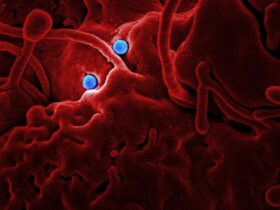Chronic kidney disease (CKD) affects millions of individuals worldwide, often progressing silently until advanced stages. Among its various classifications, stage 3 kidney disease is critical due to its moderate impairment of kidney function. An essential marker used to assess kidney health is creatinine, a waste product filtered by the kidneys. Understanding what the creatinine level for stage 3 kidney disease signifies and its implications is vital for effective management and prevention of further progression.
Creatinine levels in the blood reflect how well the kidneys are filtering waste. In stage 3 kidney disease, these levels often rise due to diminished filtration efficiency. While normal creatinine levels vary by age, gender, and muscle mass, significant deviations can signal underlying kidney issues. Identifying these changes early can help individuals and healthcare providers develop tailored treatment plans to mitigate complications.
In this article, we’ll explore the significance of creatinine levels in stage 3 kidney disease, symptoms to watch for, lifestyle modifications to improve kidney health, and when to seek medical intervention. With timely information, managing kidney health can become a proactive and informed journey.
What is the creatinine level for stage 3 kidney disease?
The creatinine level for stage 3 kidney disease varies but typically ranges between 1.5 to 2.0 mg/dL, depending on individual factors like age and muscle mass. This stage is marked by moderate kidney dysfunction, where the kidneys’ ability to filter waste is impaired. Monitoring these levels and implementing lifestyle changes or medical interventions can help manage the condition and prevent progression.
The Importance of Early Detection in Stage 3 Kidney Disease
Early detection of stage 3 kidney disease is critical in preventing further progression and ensuring optimal health outcomes. This stage signifies moderate kidney damage, where the kidneys function at only 30-59% of their normal capacity. Understanding the implications of early detection allows individuals to take timely action, reducing complications and improving quality of life.
One of the key aspects of early detection is regular monitoring of kidney function through blood and urine tests. Tests like serum creatinine, estimated glomerular filtration rate (eGFR), and urine albumin-to-creatinine ratio provide crucial insights into kidney health. Elevated creatinine levels, often ranging from 1.5 to 2.0 mg/dL in stage 3, indicate the kidneys’ reduced ability to filter waste.
Awareness of symptoms such as fatigue, swelling, and changes in urination patterns is equally important. These signs may be subtle but signify underlying kidney issues that require immediate attention. Addressing these symptoms early helps in diagnosing and managing the disease effectively.
Lifestyle modifications play a vital role in early-stage management. Adjusting dietary habits, such as reducing sodium and protein intake, supports kidney function. Regular exercise, hydration, and avoiding nephrotoxic substances like certain medications also contribute to better kidney health.
The Creatinine Levels in Stage 3 Kidney Disease
Creatinine levels are a key indicator of kidney health. Stage 3 kidney disease represents a moderate decline in kidney function, and creatinine levels play a pivotal role in diagnosing and managing this condition.
- What Are Creatinine Levels?
Creatinine is a waste product generated by muscle metabolism and filtered by the kidneys. Normal levels range from 0.6 to 1.2 mg/dL for men and 0.5 to 1.1 mg/dL for women. When kidney function declines, creatinine levels rise as the kidneys struggle to filter it efficiently. - Stage 3 Kidney Disease and Creatinine Levels
For stage 3 kidney disease, creatinine levels often fall between 1.5 to 2.0 mg/dL, depending on individual factors such as age, gender, and muscle mass. At this stage, the kidneys are functioning at about 30-59% of their normal capacity. The elevated levels indicate moderate kidney impairment that requires attention to prevent further decline. - Factors Affecting Creatinine Levels
- Age and Gender: Older individuals and males often have naturally higher levels due to muscle mass.
- Dietary Intake: High-protein diets can temporarily raise creatinine.
- Medical Conditions: Diabetes, hypertension, and infections can contribute to rising levels.
- Medications: Certain drugs like NSAIDs can strain the kidneys and elevate creatinine.
- Why Monitoring Creatinine Levels Matters
Regular monitoring through blood tests provides critical insights into kidney health. Elevated creatinine levels signal the need for lifestyle changes or medical interventions. When untreated, high creatinine levels can lead to further kidney damage, cardiovascular issues, and even chronic kidney failure. - Symptoms of High Creatinine Levels in Stage 3 CKD
- Fatigue and Weakness: Resulting from toxin accumulation.
- Swelling (Edema): A common symptom caused by fluid retention.
- Urination Changes: Including increased frequency, foamy urine, or reduced output.
- Confusion or Memory Problems: Indicating toxin buildup affecting the brain.
Understanding the significance of creatinine levels in stage 3 kidney disease empowers individuals to take proactive steps toward better health outcomes.
The Role of Nutrition in Managing Stage 3 Kidney Disease
Nutrition is a cornerstone of managing stage 3 kidney disease. As the kidneys struggle to filter waste products effectively, dietary adjustments become essential in reducing the burden on these vital organs. A kidney-friendly diet not only slows disease progression but also alleviates symptoms and improves overall well-being.
A low-sodium diet is one of the most critical aspects of nutritional management. Excess sodium increases blood pressure and fluid retention, which can exacerbate kidney damage. Limiting processed foods and using herbs and spices as seasoning alternatives can significantly reduce sodium intake. Similarly, controlling protein consumption helps decrease the production of waste products like urea and creatinine, which the kidneys must filter.
Incorporating plant-based foods such as fruits, vegetables, and whole grains provides essential nutrients while minimizing the intake of phosphorus and potassium, which are often restricted in kidney disease. Foods like apples, cabbage, and cauliflower are excellent choices for individuals with kidney concerns.
Hydration is another key factor in kidney health. Drinking adequate amounts of water helps flush out toxins without overburdening the kidneys. However, overhydration should be avoided, particularly in cases of fluid retention or swelling.
Managing Stage 3 Kidney Disease: Lifestyle and Medical Interventions
Management of stage 3 kidney disease focuses on reducing creatinine levels, preventing complications, and slowing disease progression through lifestyle and medical approaches.
Lifestyle Adjustments for Managing Creatinine Levels
- Dietary Changes
- Reduce Sodium Intake: Helps control blood pressure and minimizes fluid retention.
- Limit Protein Consumption: Reduces the production of waste products like urea and creatinine.
- Increase Plant-Based Foods: Fruits and vegetables support kidney health while providing essential nutrients.
- Stay Hydrated
- Drink adequate water to support kidney filtration but avoid overhydration, which can strain weakened kidneys.
- Regular Exercise
- Engage in moderate activities like walking or swimming to improve overall health and blood circulation without overburdening the kidneys.
- Quit Smoking and Reduce Alcohol
- Smoking exacerbates kidney damage, while excessive alcohol consumption can impair kidney filtration further.
- Monitor Blood Pressure and Blood Sugar
- High blood pressure and diabetes are the leading causes of CKD. Managing these conditions is essential for kidney health.
Medical Interventions to Manage Creatinine Levels
- Medications
- ACE Inhibitors or ARBs: Help control blood pressure and slow kidney damage.
- Diuretics: Reduce fluid retention and swelling.
- Regular Monitoring
- Frequent tests to track creatinine levels, estimated glomerular filtration rate (eGFR), and electrolyte balance provide a comprehensive picture of kidney function.
- Treating Underlying Conditions
- Address diabetes, infections, or any other underlying issues contributing to kidney strain.
- Avoiding Nephrotoxic Drugs
- Limit the use of NSAIDs or over-the-counter medications that may worsen kidney function.
When to Seek Specialist Care
- Persistent Symptoms: Unexplained swelling, extreme fatigue, or changes in urination.
- Uncontrolled Creatinine Levels: Despite lifestyle and medical interventions.
- Advanced Stages: If stage 3 progresses to stage 4, more aggressive treatments or preparations for dialysis may be required.
Final Words
Understanding what the creatinine level for stage 3 kidney disease indicates is vital for proactive management. With early intervention, lifestyle changes, and medical guidance, many individuals can slow the progression of CKD and maintain a good quality of life. By staying informed and vigilant, it’s possible to take control of kidney health effectively.
FAQ’s
Q. What is a normal creatinine level for adults?
A. Normal levels are generally 0.6 to 1.2 mg/dL for men and 0.5 to 1.1 mg/dL for women, varying with age and muscle mass.
Q. Can creatinine levels be reduced?
A. Yes, by addressing the underlying causes, managing diet, staying hydrated, and following medical advice.
Q. How is stage 3 kidney disease treated?
A. Treatment includes lifestyle changes, medications to control blood pressure or diabetes, and regular monitoring of kidney function.
Q. Is stage 3 kidney disease reversible?
A. While it’s not reversible, progression can often be slowed or halted with proper care.
Q. Should I avoid specific foods with high creatinine levels?
A. Yes, limit red meat, processed foods, and high-sodium items to reduce kidney strain.



Leave a Reply